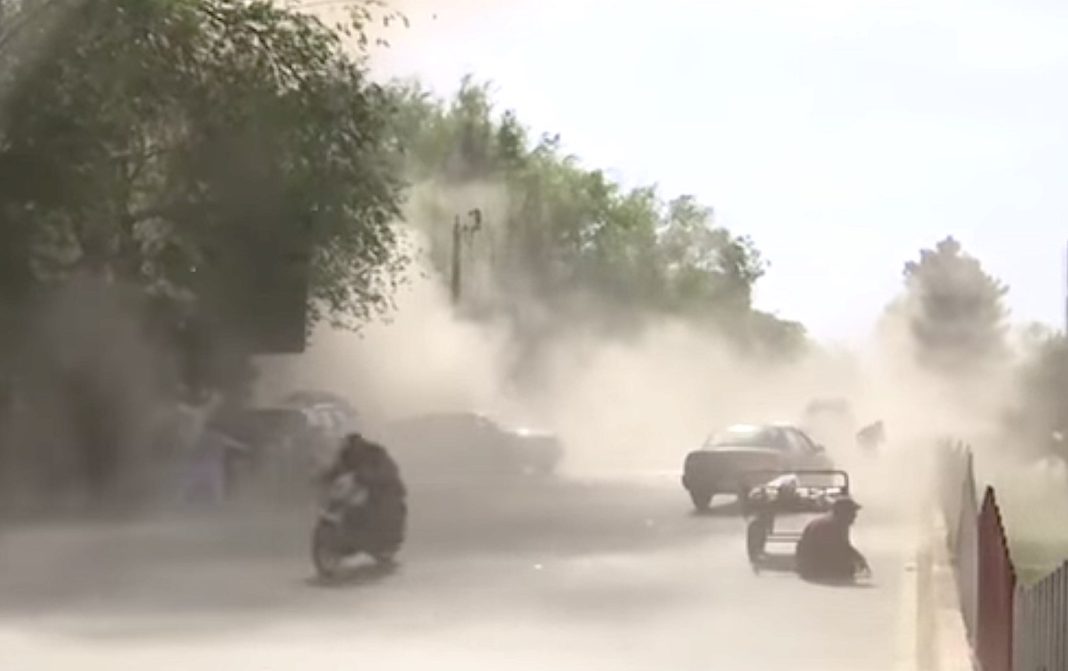By Jan Ellen
ISTANBUL (TURKISH JOURNAL)- Current reports out of Afghanistan do not bode well for anyone in that nation. The latest news is that interpreters who assisted the Dutch government are being hunted down and forced to appear in court with their families being threatened. Women have been banned from schools and told not to return regardless of what the Taliban spokesperson has reiterated that women will be able to study and work. Numerous reports of young women being sought by Taliban soldiers and thousands of Taliban taking to the streets to shout for victory – cannot possibly make any Afghan in that country feel comfortable. Just a week ago, the Taliban declared that all men must grow beards and that music in barber shops is now banned.
What is happening in Afghanistan will spill over into Pakistan as well as a host of other countries. It will create a haven for terrorists for decades to come – something that U.S. President Biden failed to consider before he insisted on a haphazard, hasty pullout from that country. Not only will the lives of those who tasted freedom for the last 20 years, be changed forever but the very fabric of what it means to be free has gone to hell in a handbasket. It is particularly astounding how the U.S. can remain idle while the U.N. insists “we must engage with the Taliban.” Engage in what? A futile dance of pretending that the Taliban really care about anyone’s needs but their own? Who can actually guarantee where that humanitarian aid money will go and the prospect of unfreezing billions in assets only to have the Taliban scoop up the spoils of a U.S. mistake – doesn’t leave a good taste in anyone’s mouth.
In addition, the Taliban have wasted no time in wiping out the human rights gains of the last twenty years in Afghanistan, according to Amnesty International, the International Federation for Human Rights (FIDH) and the World Organization Against Torture (OMCT) who stated this in a new briefing published late last month that documents the Taliban wide-ranging crackdown since their capture of Kabul barely a month ago. These rights organizations say the Taliban is in direct contradiction to the repeated claims they made that they will respect the rights of Afghans. So far, a plethora of human rights abuses have been visited on the Afghan population that include targeted killings of civilians, the blockading of humanitarian supplies in the Panjshir Valley as well as restrictions once again imposed on women, freedom of expression and civil society.
Though all the above are violations of international law, one wonders where the UN Human Rights Council stands on all this. Attacks on human rights defenders are being reported on a daily basis since August 15 with the Taliban conducting door-to-door searches for human rights defenders – forcing many of them into hiding. As Amnesty International’s Deputy Director for South Asia said: “In just over five weeks since assuming control of Afghanistan, the Taliban have clearly demonstrated that they are not serious about protecting or respecting human rights. We have already seen a wave of violations from reprisal attacks and restrictions on women, to crackdowns on protests, the media and civil human society.” He added: “Given the prevailing climate of fear, lack of mobile connectivity in many areas, and internet blackouts enforced by the Taliban, these findings are likely to represent just a snapshot of what’s happening on the ground. The UN Human Rights Council must establish a robust, independent mechanism with a mandate to document, collect and preserve evidence of ongoing crimes under international law and other serious human rights violations and abuses across Afghanistan.”
Meanwhile, the persecution and whipping of journalists and any others who seek equal rights and fairness are being continuously reported. As Delphine Reculeau Human Rights Defenders Program Director at the World Organization Against Torture (OMCT) said: “The international community must uphold its moral and political commitments and not fail the people who have dedicatd their lives to the defense of human rights, gender equality, the rule of law and democratic freedoms in their country, but protect them at all costs.” Reculeau added: “The threat faced by human rights defenders stranded in Afghanistan is real. They are under attack on all fronts as they are seen as enemies of the Taliban. Their offices and homes have been raided. Their colleagues have been beaten. They are forced into permanent hiding. They live under the constant threat of arrest, torture or worse. Those who managed to leave the country are now stranded in military camps or in neighboring countries, not knowing their final destination nor how they will be able to rebuild their lives that have been shattered overnight.”
What is worse is that it is reported that many Afghan women are currently donning the burka – a clear symbol of repression for all females. They are not leaving their homes without a male guardian and stopping their activities to prevent any reprisals or violence. Despite the danger and threats – Afghan women throughout the country have been holding protests. Though some protests were allowed to continue peacefully – many were put down violently by the Taliban. As long as the Taliban see they have carte blanche from the international community to operate as such with impunity they will not cease their repression. As FIDH Program Officer for South Asia Juliette Rousselot commented: “The international community must not turn a blind eye to the violations being committed by the Taliban. Taking concrete action at the UN Human Rights Council will not only send the message that impunity will not be tolerated, but also contribute to preventing violations on a broader scale. This should go hand in hand with support for the ongoing investigation at the International Criminal Court, in order to secure accountability for crimes against humanity and war crimes committed by all parties.” And most certainly what Rousselot has said is an understatement.




